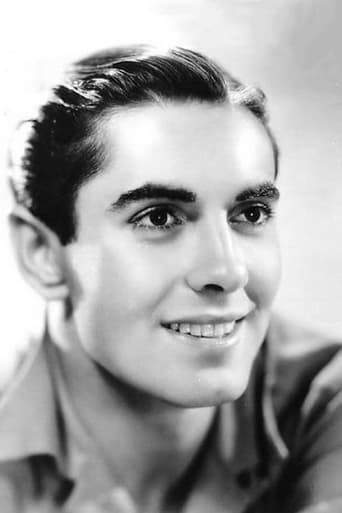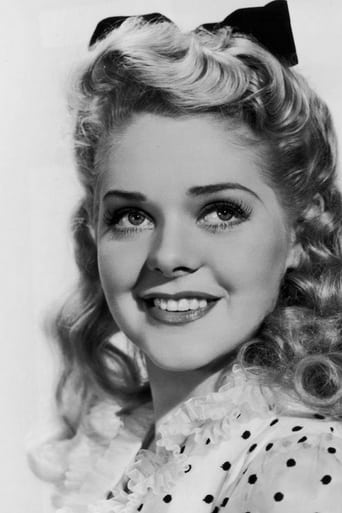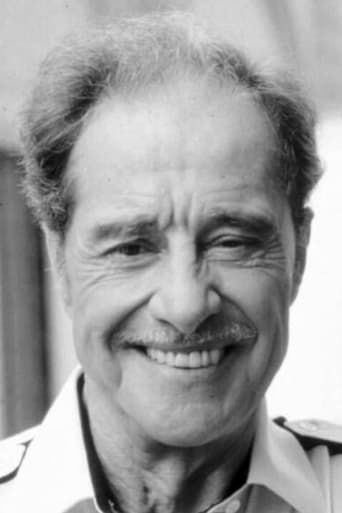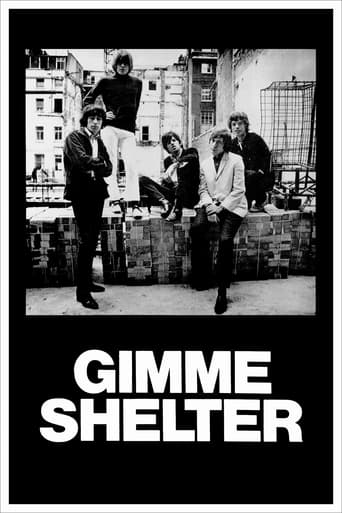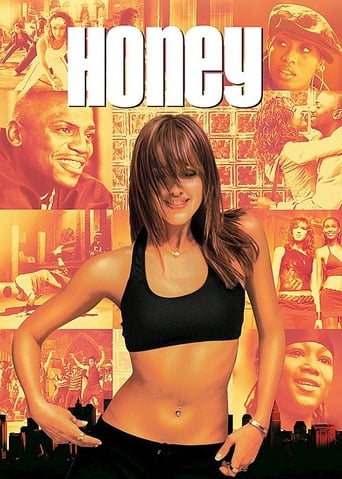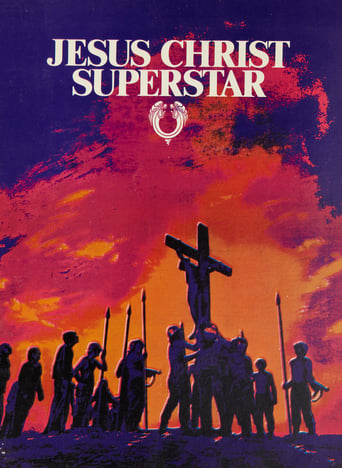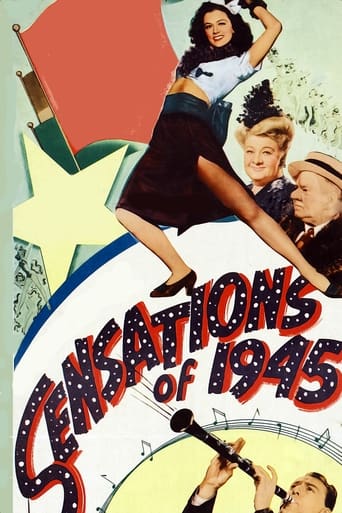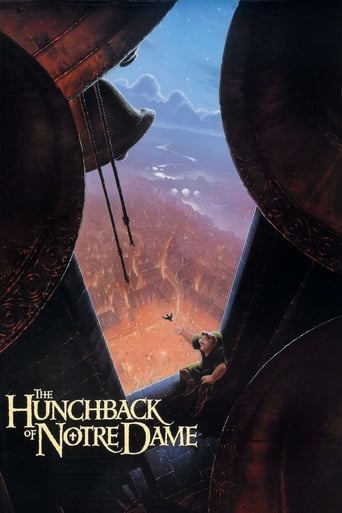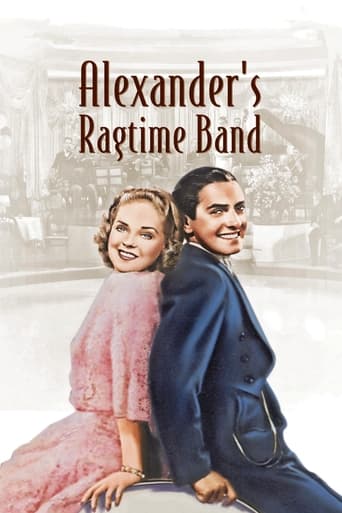
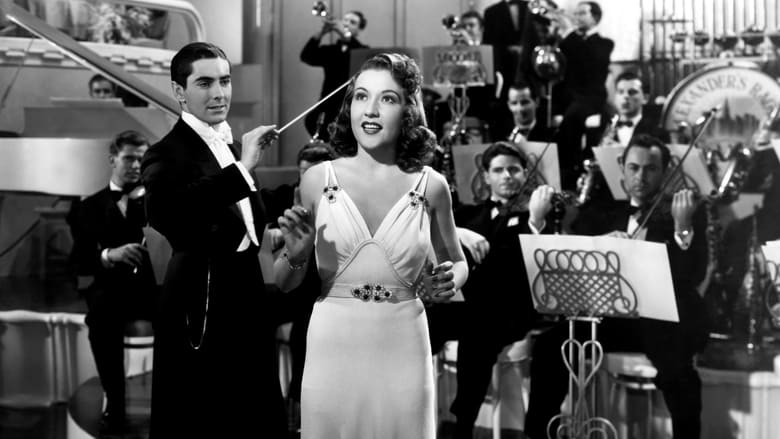
Alexander's Ragtime Band (1938)
Classical violinist, Roger Grant disappoints his family and teacher when he organizes a jazz band, but he and the band become successful. Roger falls in love with the band's singer, Stella, but his reluctance to lose her leads him to thwart her efforts to become a solo star. When the World War separates them in 1917, Stella marries Roger's best friend and, when Roger returns home after the war, an important concert at Carnegie Hall brings the corners of the romantic triangle together.
Watch Trailer
Cast
Similar titles

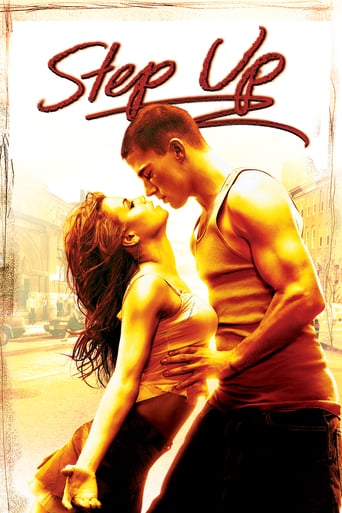
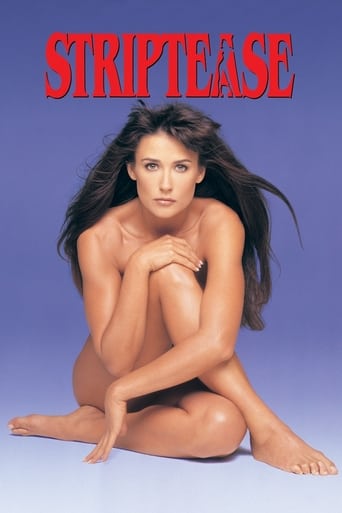
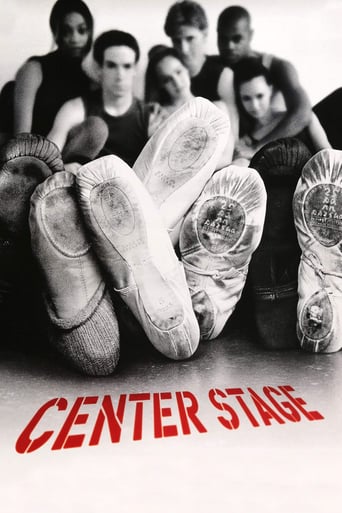
Reviews
I don't have all the words right now but this film is a work of art.
Better Late Then Never
Wow! What a bizarre film! Unfortunately the few funny moments there were were quite overshadowed by it's completely weird and random vibe throughout.
I enjoyed watching this film and would recommend other to give it a try , (as I am) but this movie, although enjoyable to watch due to the better than average acting fails to add anything new to its storyline that is all too familiar to these types of movies.
Sorry to disagree with the other reviewers. This movie is trash. There are so many wonderful Irving Berlin musicals. Astaire Rogers. White Christmas, Holiday Inn, Easter Parade and one of my favorites, Call Me Madam. This last one is Ethel Merman at her best. Alexanders Ragtime Band has wonderful actors and singers, too bad they are wasted on such an over sentimentalized story line. At least in the dvd I looked at the sound and picture were not that good either.
This is an extremely fun musical romantic comedy-drama which features the songs of Irving Berlin and stars Don Ameche (one of my absolute favourite actors), Tyrone Power and Alice Faye, three of Fox's biggest stars of the day. The screenplay was co-written by Berlin himself and features some of his best songs such as "Heat Wave", "Easter Parade" and "Blue Skies" (my personal favourite of those featured). It has a great supporting cast including future Tin Man Jack Haley, Ethel Merman, Jean Hersholt and Ruth Terry (who is still alive) as well as brief appearances by future horror icons Lon Chaney, Jr. as a photographer and John Carradine as the most unintentionally creepy taxi driver in film history.The film tells the story of a privileged young man named Roger Grant (played by Power), who takes the stage name Alexander and eventually becomes a bigwig on the swing scene, and his relationship with the initially unsophisticated "platinum loudmouth" Stella Kirby (played by Faye). After months of fighting, they realise that they love each other and become a couple but break up when Stella chooses to go to Broadway without Alexander and his band. After going to and returning from World War I, Alexander realises that he has been unfair to her and wants to get back together, only to find that she is married to his best friend Charlie Dwyer (played by Ameche, who gives the best performance in the film). However, everything turns out perfectly fine in the end and there is a happy ending of a kind that only Classic Hollywood could deliver! The second half of the film is far stronger than the first but it's a great feel good film. They don't make them like this anymore, I'm afraid. It's the kind of film that my grandmother loved.
One composer stands above the rest in his plethora of famous songs still sung today. Mr. Irving Berlin's tunes are sung at Christmas, Easter, baseball games, Fourth of July ceremonies and award shows. His Broadway book shows are few, but even though the voice has been silenced, the melody still lingers on. Half a dozen movies catalog his various hits, and this is the best. It covers the early 20th Century through pre-World War II, and even though the stars never age throughout, they are a metaphor for each song of Berlin's that do not age, either.The handsome Tyrone Power is the leader of a ragtime band, and Alice Faye is the rough-and-tough broad who becomes their star before moving onto Broadway where as a lady, she is the biggest diva on the boards. After a mistake of a marriage to their pal Don Ameche, she strikes out on her own while Power goes onto entertaining in World War I in Berlin's real Broadway revue "Yip Yip Yaphank", a pre-cursor to "This is the Army". While Berlin sang that song's "Oh How I Hate to Get Up in the Morning" in the movie version of his second all-soldier revue, it is Jack Haley (The Tin Man) who sings it here.Power's success as a ragtime band leader continues when he brings on the brassy but lovely Ethel Merman to replace Faye, and briefly considers replacing her as the woman he loves. Merman's character, a true "good egg", realizes she can never truly have his love, and gracefully bows out while continuing to sing many of Berlin's more obscure hits.Everybody sings and shines in the most acclaimed Fox musical of the 1930's, and Faye expresses the two sides of her Fox characterization-the Harlow like bombshell and the dignified lady in which she ended her film career with. Power and Ameche are romantic, Merman sings up a storm, and Haley clowns. Ethel, the future Queen of Broadway, photographs oddly at times, but once she sings and dances, her personality defies the camera and she becomes not only beautiful but sexy as well with her amazing legs in several of the big production numbers.It's not only the performers who share the star here. Berlin's songs are among his best, whether familiar gems as "Heat Wave" or "Blue Skies" or obscure finds like "My Walking Stick". In smaller roles, Helen Westley, Jean Hersholt and John Carradine offer memorable characterizations. Anybody wanting to familiarize themselves with the great American Songbook should start off by watching this movie. Then, you will understand one great American contribution to this crazy world of ours.
ALEXANDER'S RAGTIME BAND (20th Century-Fox, 1938), directed by Henry King, reunites the lead performers of Tyrone Power, Alice Faye and Don Ameche from the blockbuster success of IN OLD CHICAGO (1937) in a musical cavalcade of Irving Berlin songs spanning two decades. One of the first in a long cycle of 20th/Fox musicals focusing on the "as time goes by" theme, keeping the story together through the mixture of old and new song standards. Fox would recycle such stories similar to this over the years, with imitations done by other studios as well, with ALEXANDER'S RAGTIME BAND, the one that started it all, musically ranks one the best of its kind.The story begins in San Francisco's Barbary Coast, circa 1911, where young aristocratic Roger Grant (Tyrone Power) disappoints his strong-willed Aunt Sophie (Helen Westley) and Professor Heinrich (Jean Hersholt) by abandoning classical music for something on a more popular level. Forming a band consisting of Charlie Dwyer (Don Ameche), composer and pianist, and Davey Lane (Jack Haley), a drummer, they go to audition at a bar called Dirty Eddie's. Charlie misplaces their song sheet and at the last minute acquire one belonging to another. They play the new composition of "Alexander's Ragtime Band," but when Stella Kirby (Alice Faye), mixing with some friends, hears her borrowed music being played, she immediately heads towards the platform singing the lyrics. They become an immediate hit and Roger becomes Alexander and his Ragtime Band. In spite of Alexander and Stella constantly bickering and misunderstanding each other, it is Charlie who acts as their referee. As time passes on, Charlie, who now loves Stella, learns, while she sings one of his original compositions, that she really loves Alex. After Stella gets a job offer from Broadway producer Charles Dillingham (Joseph King), she accepts, forgetting about the band. In doing this, Alex and Stella part company, as does Charlie during a heated argument. Charlie marries Stella,and realizing she's still in love with Alex, decides to grant her a divorce for her sake. As for Alex, he prospers with Jerry Allen (Ethel Merman), as his new vocalist, while Stella leaves Dillingham and fades away to obscurity, causing Alex, now world renowned and performing at Carnegie Hall, to wonder whatever became of her. The motion picture soundtrack is as follows: "Alexander's Ragtime Band" (sung by Alice Faye); "Ragtime Violin" (sung by Jane Jones, Otto Fries and Mel Kalish); "International Rag" (Alice Faye, Jack Haley and Chick Chandler); "Everybody's Doing It" (Alice Faye, Wally Vernon and Dixie Dunbar); "Now It Can Be Told" (Don Ameche); "Now It Can Be Told" (reprize/Alice Faye); "This is the Life" (Wally Vernon); "When the Midnight Choo-Choo Leaves for Alabam'" (Alice Faye); "For Your Country and My Country" (Don Douglas); "In the Y.M.C.A." (The Kings Men); "Oh, How I Hate to Get Up in the Morning" (Jack Haley/chorus); "We're on Our Way to France" (sung by soldiers); "Say It With Music" and "A Pretty Girl is Like a Melody" and "Blue Skies" (all sung by Ethel Merman); "Blue Skies" (reprize, Alice Faye and Merman); "Pack Up Your Sins and Go to the Devil" (Ethel Merman); "What'll I Do?" (The Kings Men); "My Walking Stick" (Ethel Merman); "Remember?" (Alice Faye); "Everybody Step" (Ethel Merman); "I'm All Alone" (Alice Faye); "Marie" (instrumental); "Easter Parade" (sung by Don Ameche); "Heat Wave" (Ethel Merman, chorus); "Alexander's Ragtime Band" (reprize, Alice Faye).With such an impressive cast headed by the up-and-coming Tyrone Power, who spends more time waving his stick, and in true Hollywood storytelling, arguing and making love with his female vocalist(s), it's easy to see its initial popularity, earning several Academy Award nominations, including Best Picture, with the music keeping much the scenario together. A personal favorite of Alice Faye's, it not only allows her to sing one hit song after another, but to challenge herself as both vocalist and actress, whose character starts off as a tough gal sporting flashy clothes and plenty of facial make-up before changing through the passage of time to a more softer persona moderately dressed. While much of the principal players remaining physically the same throughout its 106 minutes of screen time, with the exception of costumes reflecting the changing of times, Don Ameche's only major change is sporting a mustache during the film's second half.At one point in television history, ALEXANDER'S RAGTIME BAND did enjoy frequent revivals until the mid 1970s when some legal entanglement kept it off the TV markets for quite some time. Then in 1991, it was brought back to the airwaves, on commercial television, and notably on cable television's American Movie Classics in 1991-92 before distribution on video cassette in 1992, and later onto DVD, Fox Movie Channel and Turner Classic Movies where it premiered February 11, 2010. In 1997, AMC presented a the well documented special titled "Hidden Hollywood: From the Vaults of 20th Century-Fox" narrated by Joan Collins, presenting musical outtakes, several from ALEXANDER'S RAGTIME BAND, including Ameche's singing "Some Sunny Day," and Merman in fine voice as always singing "Marching Along With Time," the tune that underscores the opening and closing credits. These outtakes are used as added attractions on DVD. Other victims of the editors ax might be those of Jean Hersholt and Helen Westley, whose characters are seen to the limit. Of the supporting players, many are too numerous to pen their individual attention, are Paul Hurst, best known for playing villains or gangster stooges, ideally cast in a sympathetic role as Bill Mulligan, and John Carradine, appearing briefly as a taxi driver and avid fan of Stella Kirby.With Power and Faye constantly settling the score with one another, ALEXANDER'S RAGTIME BAND swings into action hitting many high notes, with much of its melody lingering on. (****)
